Advisory Board
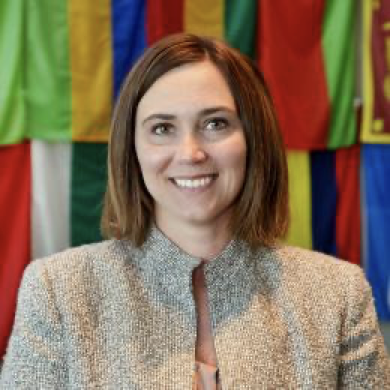
Ashley Barker
Group Leader for the User Assistance and Outreach, Oak Ridge National Laboratory
Ashley Barker is the Group Leader for the User Assistance and Outreach (UAO) team at the Oak Ridge Leadership Computing Facility (OLCF) located at Oak Ridge National Lab (ORNL). UAO is responsible for facilitating access to OLCF resources, providing training, documentation, and technical support to users, collecting and reporting on user facility data, and acquainting the public with the work conducted at the OLCF through scientific highlights. The OLCF supports more than 1,200 users and 250 projects annually from a wide spectrum of science domains.
Ashley served as the National Climate Research Center (NCRC) Project Director from 2014-2016. The NCRC project represents a partnership between NOAA and DOE and through this partnership, the NCRC team has delivered multiple computer systems to NOAA, allowing the agency to advance its climate modeling and improve our understanding of climate variability and change.
Ashley is also currently involved in the Exascale Computing Project (ECP) as the Control Account Manager (CAM) for training and productivity.
Ashley earned her Master of Science degree in Information Sciences from the University of Tennessee.
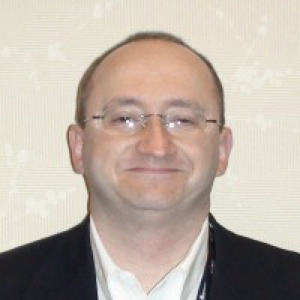
Jeff Layton
Senior Technical Marketing Engineer, NVIDIA
Dr. Jeff Layton received his Ph.D. in Aeronautical and Astronautical Engineering from Purdue University. He is currently a senior Technical Marketing Engineer at NVIDIA working primarily on AI/ML and HPC applications, specifically storage characterization. He also works on various software projects with NVIDIA that impact HPC clusters and AI/ML tools and applications. He has taught several courses on AI/ML such as, Python on GPUs, Data Science using GPUs, Image Recognition, and Building AI/ML and HPC containers.
Dr. Layton has had a varied career having been an Army officer followed by a professor at Clarkson University’s Department of Mechanical and Aeronautical Engineering publishing several research papers related to aerospace engineering, design, and engineering education. He also served on the Flight Dynamics Technical Committee for the American Institute of Aeronautics and Astronautics (AIAA) where he is a senior member. He has significant experience in procuring and managing HPC systems in the aerospace industry.
Applying his HPC background from aerospace to the HPC industry, Dr. Layton has amassed 25+ years of customer facing, hands-on, technical experience in HPC. He was worked for Linux Network as a Solution Architect Manager, Panasas as a senior benchmark engineer, Dell as an Enterprise Technologist and product strategist, the product manager for Lustre at Intel, and a principal engineer for Aerospace at Amazon Web Services (AWS).
Dr. Layton writes articles about AI/ML, HPC, HPC Storage, Storage, and Linux in various publications, publishing over 300 unique articles. He has also published approximately 10 conference papers and book chapters on HPC applications with an emphasis on HPC storage applications.
Dr. Layton has also contributed to the open-source projects for Ganglia, Warewulf, and HPCCM (HPC Container Maker).
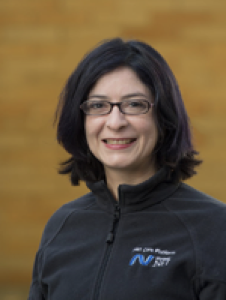
Erika Parsons
Associate Professor, School of Science, Technology, Engineering & Mathematics, University of Washington, Bothell
Dr. Parsons received her Ph.D. in Computer Science from the University of Tennessee, Knoxville, working with the Innovative Computing Laboratory. At Microsoft (2008-2013), she worked as an SDET for the Developer Division (.NET Framework). After rediscovering her passion for teaching and academic work, she became faculty at Washington State University and Everett Community College in 2013, prior to joining UW Bothell.
At Microsoft, Dr. Parsons worked in software reliability and performance testing for quality assurance across features of the Common Language Runtime, and designed technical specifications for threading features of the product. In regards to teaching, her philosophy and goal is to prepare students to be independent and motivated learners, focused around being a team with the students, where everybody has responsibilities towards a goal, very much like in industry.
Dr. Parsons research work and interests have focused on high performance computing, applied machine learning and statistical data analysis. Her research efforts have recently geared towards the application machine learning algorithms for development of software tools for academic advising, in particular a recommendation system for student academic pathways.
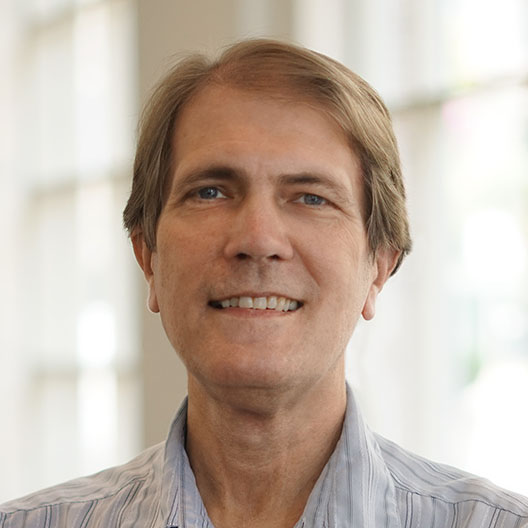
Bronis R. de Supinski
Chief Technology Officer, Livermore Computing, Lawrence Livermore National Laboratory
Bronis R. de Supinski is the Chief Technology Officer (CTO) for Livermore Computing (LC) at Lawrence Livermore National Laboratory (LLNL). In this role, he is responsible for formulating LLNL's large-scale computing strategy and overseeing its implementation. His position requires frequent interaction with high performance computing (HPC) leaders and he oversees several collaborations with the HPC industry as well as academia.
Prior to becoming CTO for LC, Bronis led several research projects in LLNL's Center for Applied Scientific Computing (CASC). Most recently, he led the Exascale Computing Technologies (ExaCT) project and co-led the Advanced Simulation and Computing (ASC) program's Application Development Environment and Performance Team (ADEPT). ADEPT is responsible for the development environment, including compilers, tools and run time systems, on LLNL's large-scale systems. ExaCT explored several critical directions related to programming models, algorithms, performance, code correctness and resilience for future large scale systems. He currently continues his interests in these topics, particularly programming models, and serves as the Chair of the OpenMP Language Committee.
Bronis earned his Ph.D. in Computer Science from the University of Virginia in 1998, and he joined CASC in July 1998. In addition to his work with LLNL, Bronis is a Professor of Exascale Computing at Queen's University of Belfast and an Adjunct Associate Professor in the Department of Computer Science and Engineering at Texas A&M University. Throughout his career, Bronis has won several awards, including the prestigious Gordon Bell Prize in 2005 and 2006, and R&D 100s, including one for his leadership of a teamthat developed a novel scalable debugging tool. He is an IEEE Fellow.
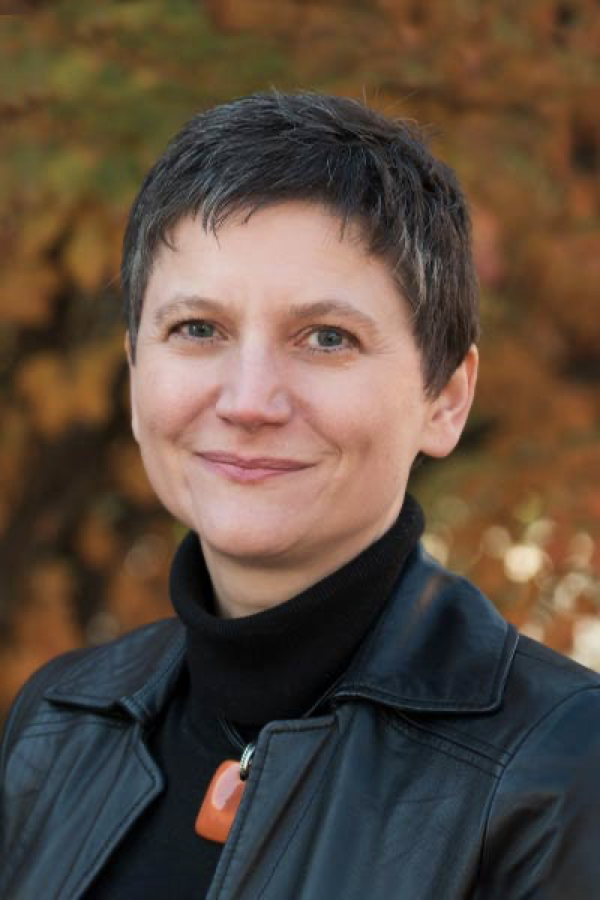
Michela Taufer
Dongarra Professor, University of Tennessee, Knoxville
Michela Taufer is an ACM Distinguished Scientist. She was a J.P. Morgan Chase Scholar at the University of Delaware where she led the Global Computing Lab to promote the use of high performance computing to advance sciences. Michela Taufer joined the University of Delaware in 2007 where she was promoted to associate professor with tenure in 2012 and full professor in 2017. She earned her MS in computer engineering from the University of Padova and her PhD in computer science from the Swiss Federal Institute of Technology (ETH). She was a post-doctoral research supported by the La Jolla Interfaces in Science Training Program (also called LJIS) at UC San Diego and The Scripps Research Institute. Before she joined the University of Delaware, Taufer was faculty in computer science at the University of Texas at El Paso.
Taufer has a long history of interdisciplinary work with high-profile computational biophysics groups in several research and academic institutions. Her research interests include software applications and their advance programmability in heterogeneous computing (i.e., multi-core platforms and GPUs); cloud computing and volunteer computing; and performance analysis, modeling and optimization of multi-scale applications. She has been serving as the principal investigator of several NSF collaborative projects. She also has significant experience in mentoring a diverse population of students on interdisciplinary research. Her training expertise includes efforts to spread high-performance computing participation in undergraduate education and research as well as efforts to increase the interest and participation of diverse populations in interdisciplinary studies.
Taufer has served on numerous IEEE program committees (SC and IPDPS among others) and has reviewed for most of the leading journals in parallel computing. She served as the IEEE Cluster 2015 General co-Chair and the IEEE IPDPS 2017 General Chair. She is the ACM/IEEE SC19 General Chair

John West
Director of Strategic Initiatives, Texas Advanced Computing Center (TACC)
John West is Director of Strategic Initiatives at the Texas Advanced Computing Center, based at the University of Texas at Austin. TACC provides advanced computational services and expertise to the open science community, and is the largest provider of supercomputing resources in the NSF cyberinfrastructure community. Prior to joining TACC, he was Director of the Department of Defense High Performance Computing Modernization Program, a multi-hundred million dollar (annual) DOD-wide program that provides computational expertise, supercomputers, and a national research network for the Defense acquisition, science, engineering, and test communities. Prior to that he held positions in private industry and the federal government, with responsibilities in computational modeling and high-performance infrastructure. He also founded the technical news site insideHPC.com, achieving 1.5 million page views per month before he sold it three years after launch; the company remains successful and has grown to include other sites.
West was recognized with the Department of the Army's R&D Award. He was a founding officer of the ACM Special Interest Group on High Performance Computing (SIGHPC) and now serves as its chair. He is past chair of the High End Computing working group of the National IT R&D Subcommittee of the National Science and Technology Council's (NSTC) Committee on Technology, a former Associate Editor in Chief of IEEE Computational Science and Engineering, and founding co-chair of the ACM Diversity and Inclusion Council. A Distinguished Fellow of the Bagley College of Engineering at Mississippi State University, he has served on planning and review boards for universities, the National Science Foundation, and a number of federal agencies.
Anvil is supported by the National Science Foundation under Grant No. 2005632.
